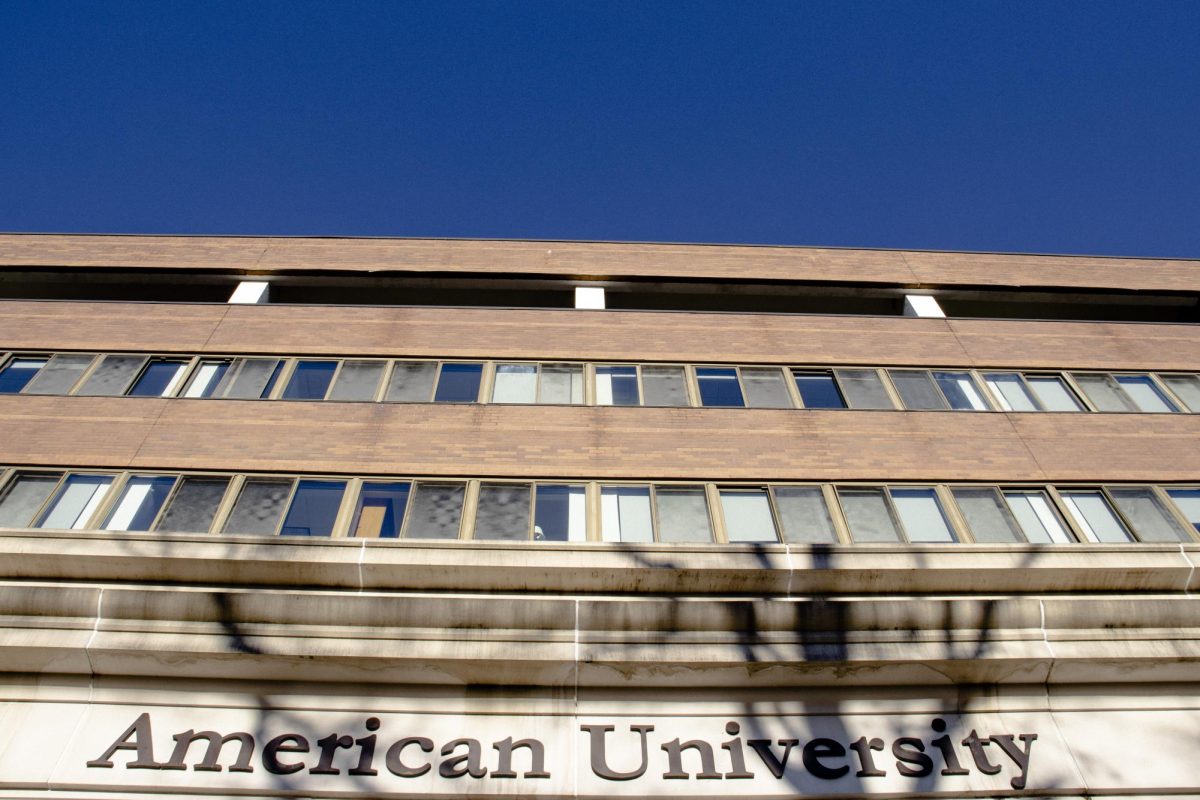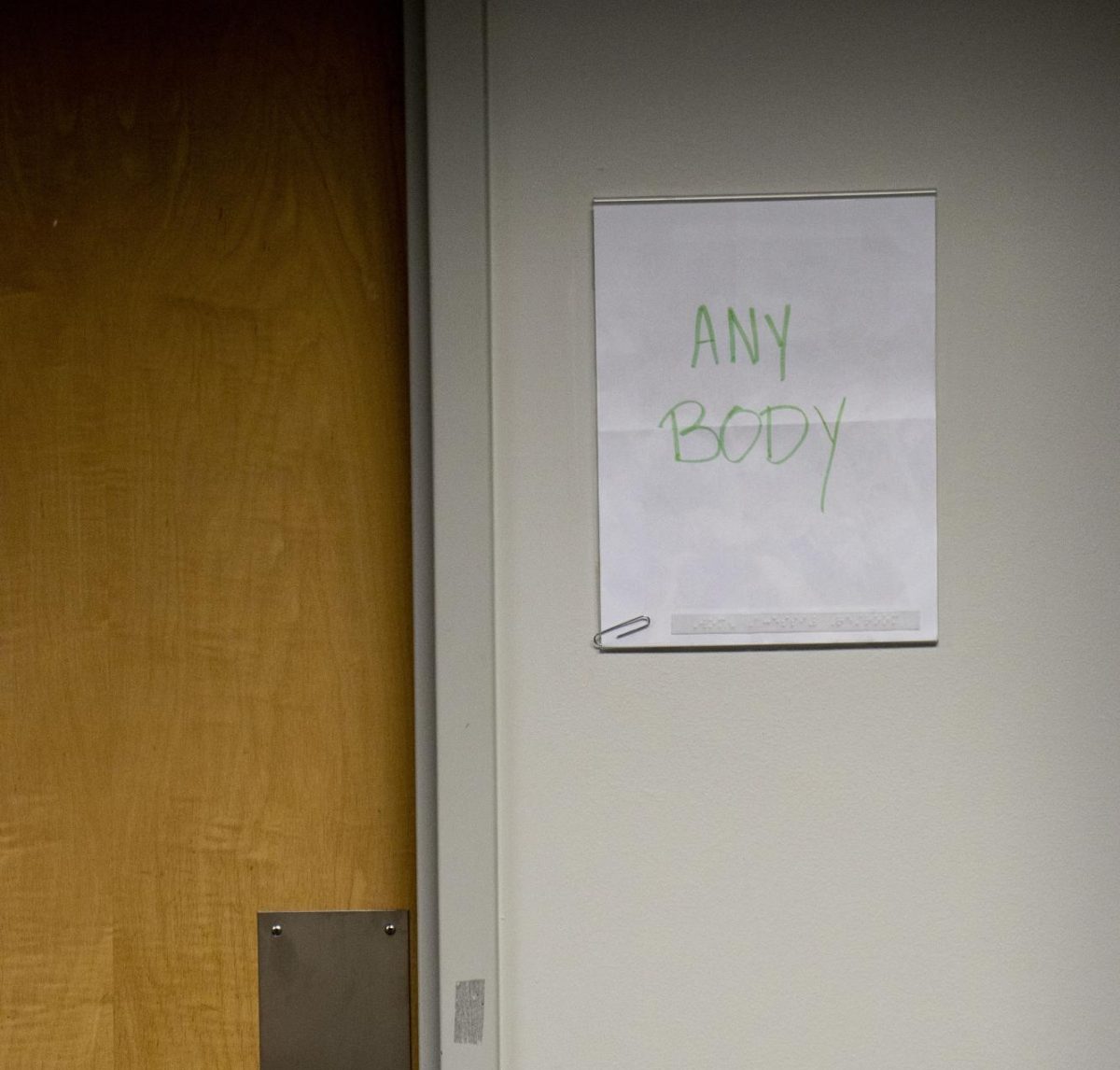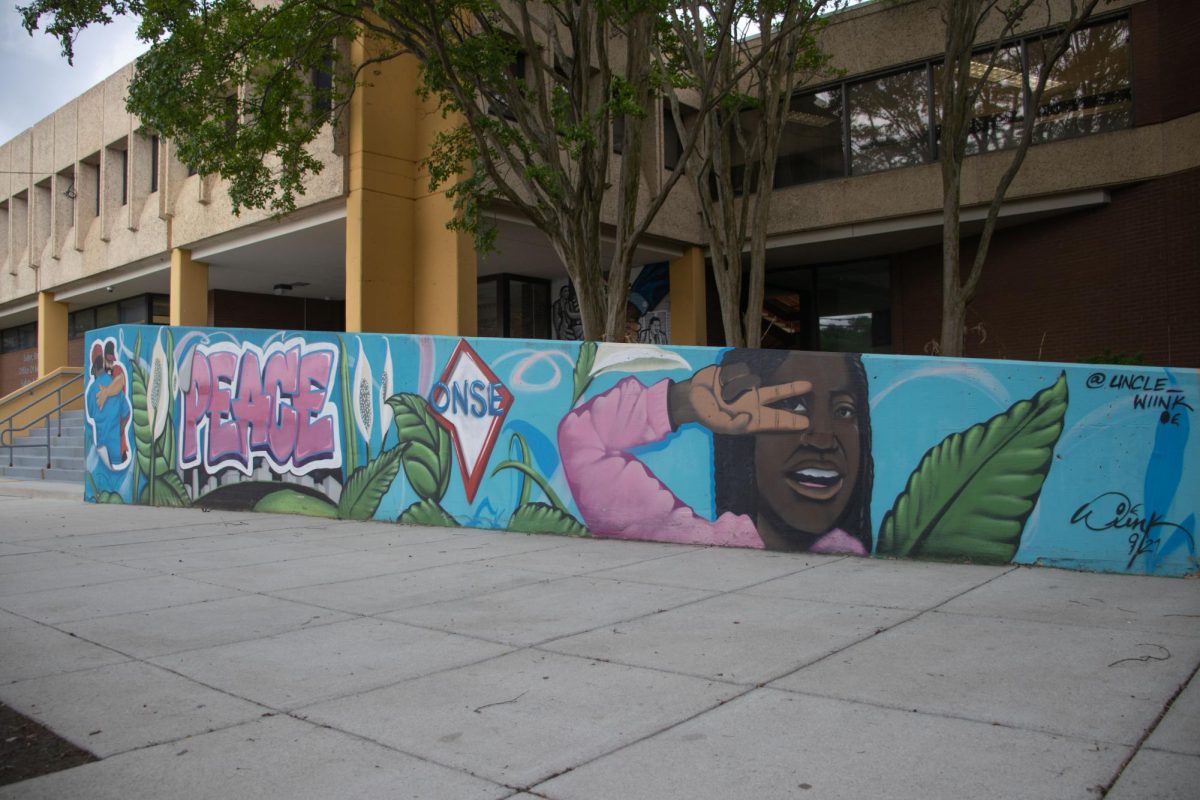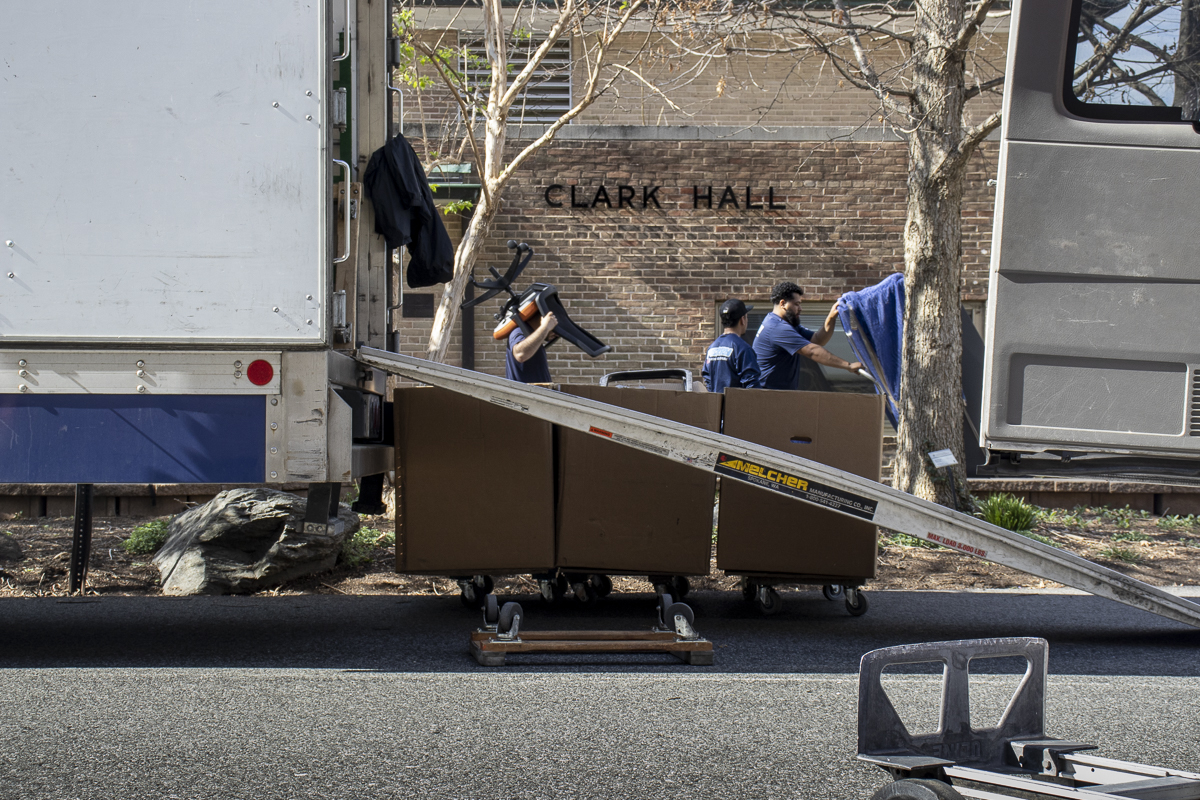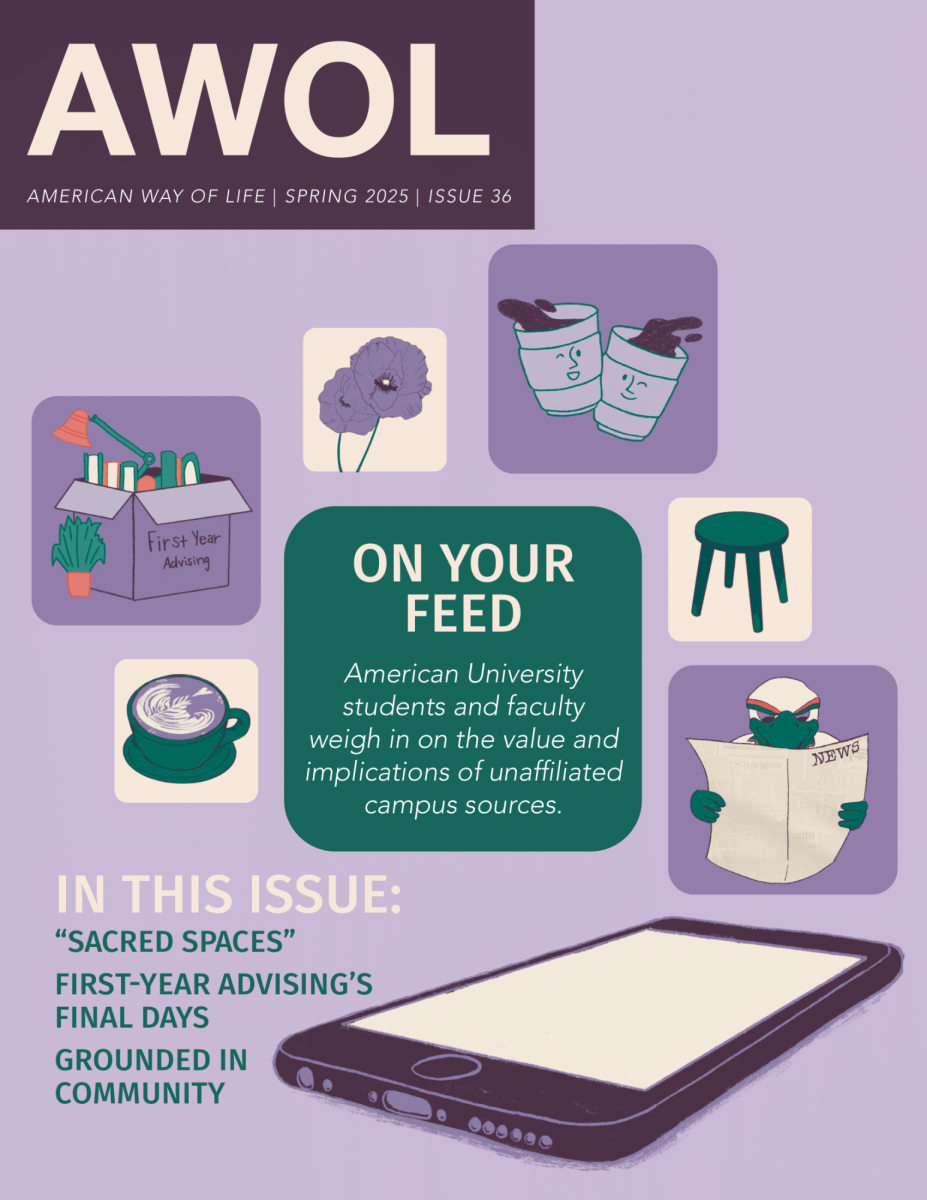The D.C. Zoning Commission approved Wesley Theological Seminary’s plans to construct a 215-unit apartment behind Leonard Hall and fund affordable housing throughout Ward 3 on Feb. 27.
The housing would be largely designated for American University students, according to a 2023 planned unit development application. Plans for the dormitory, officially called “New Dormitory,” began on Nov. 12, 2021, when Wesley served their notice of intent to pursue the student housing project.
Wesley’s planned construction would open hundreds of beds to AU students seeking housing near campus at a time when AU students face difficulty securing on-campus accommodations. According to a November 2024 3D Advisory Neighborhood Commission letter from then-Chair Tricia Duncan, AU lacks capacity to house approximately 5,000 of its undergraduate student body and any of its graduate students. Duncan also criticized AU in the letter for its lack of involvement in a project which will benefit its students.
In the negotiations surrounding project specifics, ANC 3D, now 3E, commissioners and Wesley discussed whether the lot neighboring AU should be required to include affordable housing.
Midway through the process of Wesley’s negotiations, ANC’s 3D and 3E underwent redistricting, moving AU and Wesley into ANC 3E, said Rohin Ghosh, an AU senior and former ANC 3E08 commissioner.
ANC 3E allowed Wesley to fulfill their affordable housing requirement off-site rather than being part of the development, ANC 3E Chairperson Jonathan Bender said.
Wesley initially said in a Nov. 4, 2024, pre-hearing submission they were exempt from having to provide inclusionary zoning , or affordable housing, units to eligible applicants. However, the ANC disagreed, Bender said. He said the two parties decided Wesley will allocate the same amount of funds they would have for on-site housing to pay for off-site inclusionary zoning housing elsewhere in Ward 3. The April 2024 agreement said Wesley wouldn’t be providing inclusionary zoning within its new development behind Leonard Hall.
In a 2023 letter addressed to the zoning commission, Wesley said it planned on opening up housing to students no later than the Fall 2026 semester. However, Wesley didn’t obtain the necessary permits to begin construction until this year because they were negotiating how to fund inclusionary zoning housing, according to the National Capital Planning Commission’s text amendments. Wesley worked with Landmark Properties, a student housing real estate firm, to propose the project, according to a 2024 ANC 3E supplemental report.
The upscale student housing, situated behind Leonard Hall, will not be affiliated with AU, but it will directly compete with AU’s on-campus housing options, Bender said. Because Wesley’s construction will not include a quota of on-site inclusionary zoning housing, Ghosh said, Wesley will be funding affordable housing elsewhere in Ward 3.
Affordable housing near AU?
Wesley’s plan to fund affordable housing around Ward 3 comes after the seminary said their in-house construction was exempt from an inclusionary zoning requirement. In 2024, Wesley withdrew their 2023 proposal that would have required them to build affordable housing in the complex, Ghosh said.
Housing built for and by institutions to house only their students are exempt from inclusionary zoning, according to a notice of final rulemaking from the Office of the Deputy Mayor for Planning and Economic Development published in 2009. Bender said Wesley’s new development would be open to Wesley and AU students and, therefore, would not be exempt from inclusionary zoning housing.
“The bulk of the beds would be for AU,” Bender said. “But there would be, I don’t remember, 60 or 80 or something like that would be reserved for Wesley.”
It remains unclear exactly how many beds would be reserved for Wesley students compared to AU students. Wesley Residence Life Coordinator Rev. Lee Russell Brown did not provide a comment or interview. Wesley Seminary’s Media Room did not respond to multiple requests for interview or comment.
As a compromise between providing onsite inclusionary zoning housing and being entirely exempt, Wesley agreed to fund inclusionary zoning housing within Ward 3 by giving money to the Local Initiatives Support Corporation, Ghosh said.
Ghosh said Wesley offered $8 million. He and Bender said they believed the proj- ect would require more funds. Bender said a lawyer with Landmark, the real estate firm partnering with Wesley, suggested in a prior community meeting the $8 million figure came from the savings gained by reducing planned parking.
Bender said the ANC talked to a developer to understand how much money Wesley should allocate for affordable housing. He said the developer estimated Wesley would need to contribute $16 million to meet the minimum requirement, instead of the $8 million they initially offered.
“It seems to us that they’re basically offering only to do about half of what they would have to do if they actually had to procure actual IZ,” Bender said, using an acronym for inclusionary zoning.
Wesley has not finalized how much it will contribute to inclusionary zoning, according to ANC 3E’s 2024 zoning commission filing.
In a May 2024 response to Wesley’s filing, Bender wrote that the ANC introduced Landmark to the idea of providing affordable housing at 4620 Wisconsin Avenue, situated between the Tenleytown-AU and Friendship Heights Metro stops. However, no exact location has been officially decided upon.
Bender said AU has shown they are not interested in the housing project, and if they were to look to increase housing, they would do so internally. He said if AU were to be in a situation where they wanted to partner with Wesley to provide more student housing, then he would look at the endeavor differently. Bender said Wesley and Landmark have tried to portray the dorm as a combination between Wesley and AU.
“AU has politely made it clear to the [zoning commission] and Wesley that it does not want, much less need, such an arrangement,” Bender said.
AU Deputy Chief Communications Officer Elizabeth Deal said in an Oct. 19, 2023, statement to AWOL that AU prioritizes maintaining a good relationship with Wesley, and has had no involvement in Wesley’s construction plan. Deal said the 2021 campus plan allows them to meet student housing needs, but AU is willing to collaborate with Wesley on community issues.
“We remain open to discussing issues and factors that could impact our campus community and neighbors given its proximity to AU, including site access, transportation, and parking or safety and security,” Deal said.
AU did not provide an updated comment for the spring 2025 semester. Bender said AU has been adamant in saying they are not facing a housing shortage, and they have no need for Wesley’s project.
“AU has strived to be diplomatic, but it is clear that they don’t need this project and that they are not, in any way, partners aside from, you know, being willing to work collaboratively with Wesley and Landmark,” Bender said. “But they’re not partners.”
Ghosh said Wesley and AU have not been “talking to each other” about this planned construction, despite it affecting both schools’ communities.
“They both have interest in what goes on here,” Ghosh said. “I think AU is choosing to just completely disengage, is my understanding.”
What does this mean for AU?
Starting Fall 2025 semester, AU will require both first-years and sophomores to live on campus, according to AU’s Housing and Residence Life “Residency Requirement” page.
Once constructed, the space would provide 215 apartment units for exclusively Wesley students, their direct families and AU students, according to Wesley’s 2023 proposal.
In order to build the proposed nearly 300,000-square-foot, 659-bed complex, Wesley would need to demolish its Carroll and Straughn Halls, described in the proposal as “two 1960-era obsolete dorms.”
Wesley started their modernization in 2006, when they were granted a permit from the zoning commission to expand their residential space by 30,000 square feet, among other construction and renovation action items, according to Wesley’s 2023 application for the project.
In 2022, Wesley had a total enrollment of 454, nearly a 30% drop from 2012, when 634 students were enrolled at Wesley, according to Data USA’s page for the seminary. The revenue Wesley makes from the new housing will help Wesley remain open, according to a July 2024 memo from the D.C. Office of Planning.
Ghosh said he sees the new housing opportunity as potentially beneficial to students.
“What I can say that if the project goes through, it’ll be beneficial to AU students, not necessarily to the institution; I don’t know, but I think institutions should act in the interests of its students,” Ghosh said before the Zoning Commission approved the plans.
Duncan said she supported the construction in her 2024 letter to the Zoning Commission.
“Frankly, we wish American University would take more responsibility for housing its own students, and we are therefore happy to see a proposal from Wesley that would begin to relieve this burden,” Duncan said in the letter.
In a December 2024 ANC 3E filing signed by Bender, the ANC said AU is not interested in being part of the Wesley construction deal. At a 2024 public hearing, Bender said the project might not reduce on-campus or other nearby housing, according to a written copy of the speech.
“Instead, it may just provoke a kind of luxury arms-race with AU to provide the fanciest housing for well-heeled students,” he said.
Ghosh said Wesley’s project could benefit the community, helping lower housing costs.
“Having another housing option in the neighborhood is an incredibly positive thing for students and for the community writ large,” he said. “I think it generally just, like, puts a downward pressure on housing costs.”
In his November 2024 testimony, Bender said Landmark had proposed the new dorms be more upscale than the average dorm, in an effort to attract students, according to a transcript of the testimony. AU representatives do not think AU requires this project, Bender said, and instead AU plans on providing nicer housing to improve their on-campus experience.
Should the need for more housing arise, AU plans to first repurpose existing buildings like the Beeghly Chemistry Building, according to the 2021 AU campus plan. Bender said this is the most recent version of the campus plan.
Given the new first-year and sophomore on-campus residency requirement going into effect next semester, Claire McCafferty, an AU student and ANC 3A04 commissioner, said the higher number of underclassmen seeking on-campus housing would make it more difficult for upperclassmen to secure AU housing.
“I recently saw that AU made it mandatory for freshmen and sophomores to stay on campus, which just means that there’s going to be more, like, juniors and seniors needing space, and only, like, it’s just a cluster,” McCafferty said. “And it’s really, really stressful to try to secure housing in the city, and when you have to do that to still go to school, it’s really stressful.”
This article was originally published in Issue 36 of AWOL’s magazine on April 15, 2025. You can see the rest of the issue here.
Editing by Ava Ramsdale, Julia Cucchiara, Ben Austin, Will Sytsma, Bailey Bish, Kalie Walker, Stella Camerlengo, Caleb Ogilvie, Grace Hagerman and Alexia Partouche.




